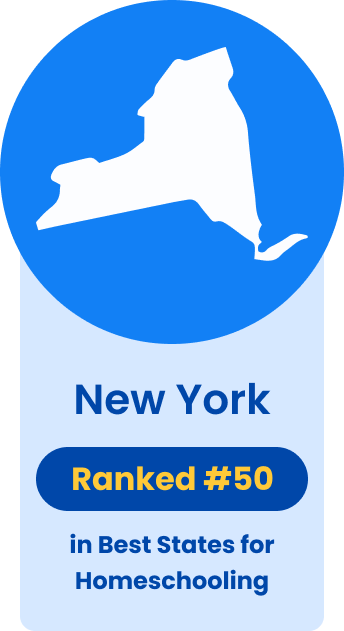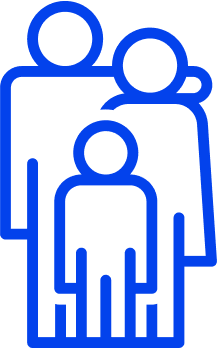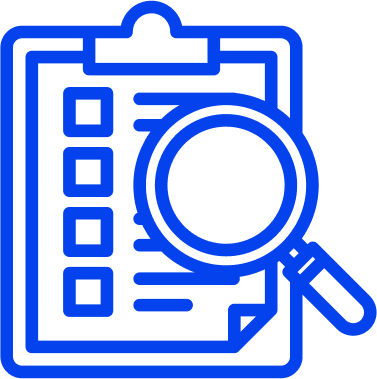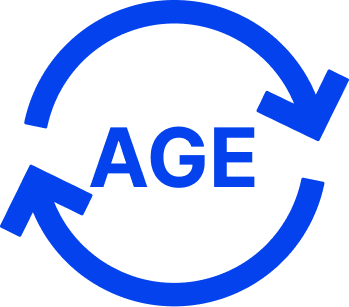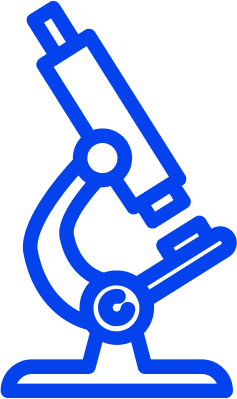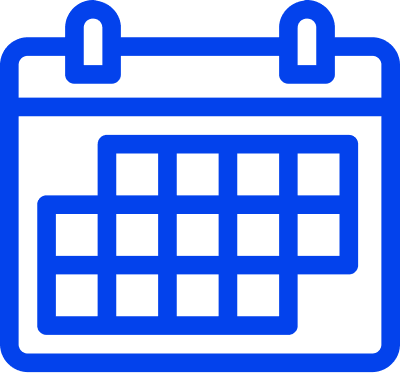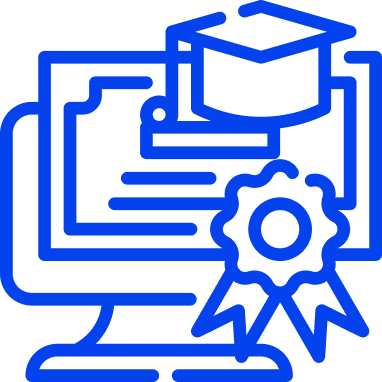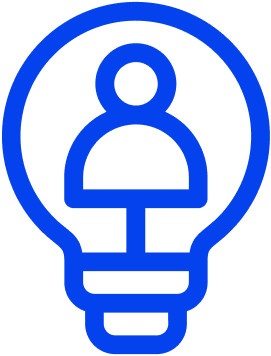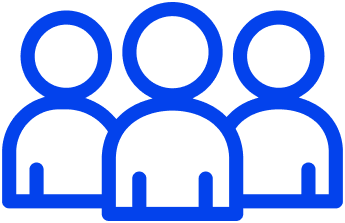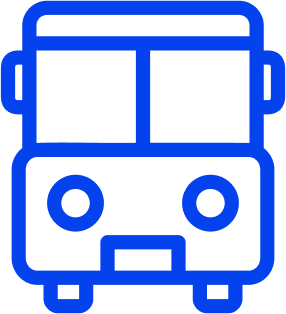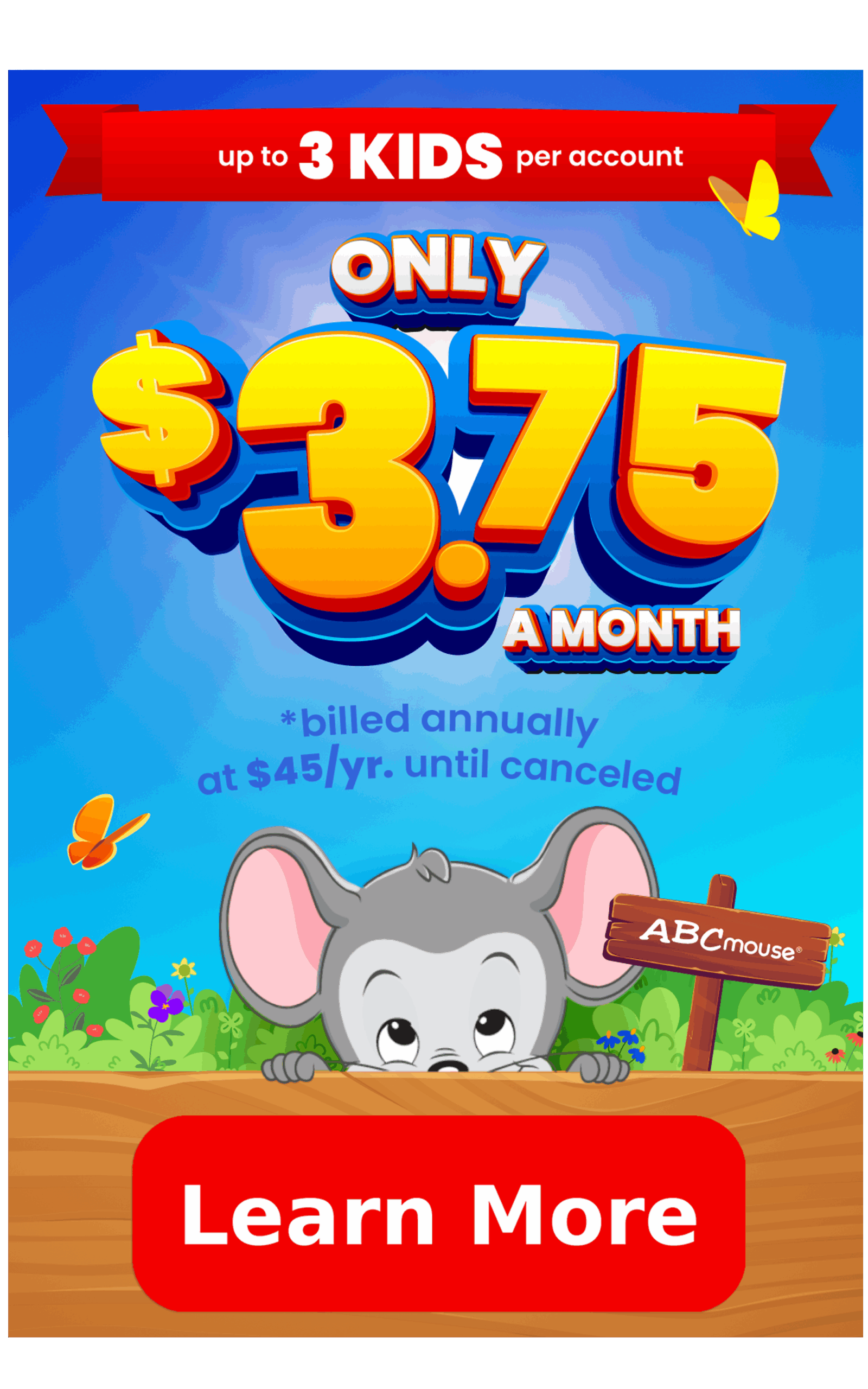New York Homeschooling Laws and Resources
Thinking about homeschooling in New York State or New York City? Check out this comprehensive overview to learn what’s required and get helpful tips and resources to kickstart your homeschool journey.
Homeschooling in New York Overview
Notice of Intent Required: Yes
1 Option for Homeschooling: Home Instruction
Subject or Curriculum Requirements: Yes
Attendance Age Requirements: 6-17
Record-Keeping Requirements: Yes
Assessments or Evaluations Required: Yes
Proof of Immunization Required: No
Table of Contents
New York Homeschooling Laws and Regulations
How to Start Homeschooling
Annual Letter of Intent
Individualized Home Instruction Plan
Quarterly Progress Reports
Mandatory School Age
Subject Requirements
Attendance Requirements
Record-Keeping Requirements
Evaluations and Assessments
Required Immunizations
Resources for Homeschooling Families in New York
Homeschool Groups and Co-ops
Sports Opportunities
Homeschool Field Trips
Special Education Homeschoolers
How Our Curriculum Can Help
Homeschool FAQ


How to Start Homeschooling in New York
In New York, homeschooling is also called home instruction, and the two terms are used interchangeably. Parents and guardians may instruct their children or contract with someone else to teach them. The law states that instructors must be “competent.” This is the only specific qualification of homeschool instructors.
Homeschool families must provide their local school superintendent with education plans and regular progress reports. New York homeschool requirements include the following:
- Send an annual letter of intent to homeschool.
- Teach the required subjects by grade and ability.
- Submit a yearly Individualized Home Instruction Plan for each child.
- Provide quarterly progress reports.
- Meet the minimum attendance requirements.
- Provide annual academic evaluations for each child.
Find more information on these items below, or visit the New York State Education Department Home Instruction page for more.
Homeschooling in New York City
Families in New York City (Brooklyn, Bronx, Manhattan, Queens, or Staten Island) follow all the same state homeschool laws, except their point of contact is different. Rather than working with a local district superintendent, New York City home educators provide their information to the New York City Public Schools Central Office of Homeschooling. Find more information here.

Annual Letter of Intent to Homeschool in New York
Each year, families must send a letter of intent to homeschool to their local school superintendent by July 1st for the upcoming school year. If you withdraw your child from school mid-year to begin home instruction, send your letter of intent within 14 days.
Include the names, ages, and grades of all children you’ll be homeschooling in your letter. Also include parent contact information, including a mailing address. Contact your local school superintendent’s office to learn where to send your letter of intent.
TIP: In New York City, you may use this printable form for your initial letter of intent and email it to letterofintent@schools.nyc.gov. Families who continue homeschooling after the first year may use this online form instead.
You should receive a response from the county superintendent within 10 business days of sending your letter of intent. It will include the paperwork you need to complete regarding your child’s Individualized Home Instruction Plan (more information below). Contact the superintendent’s office if you do not receive this within 10 days.

New York Individualized Home Instruction Plan (IHIP)
Every year, you must complete an Individualized Home Instruction Plan for each child you plan to homeschool. Your local district will provide the appropriate forms for you to use. You must submit your IHIP by August 15th of each year.
The IHIP must include the following:
- Child’s name, age, and grade level
- Syllabi, curriculum materials, textbooks, or plan of instruction to be used in each of the required subjects over the coming year
- Dates you will submit quarterly progress reports (must be evenly spaced throughout your planned academic year)
- Names of all individuals providing instruction to the child
- If your child will be enrolled in a full-time program (12 semester hours or equivalent) at a degree-granting institution, identify the institution and subjects covered.
Parents are free to choose any textbooks, curriculum programs, instructional methods, or educational materials. The district may ask to review these materials to ensure the IHIP covers the required subjects for the current grade level.
All you need to homeschool is a passion for your child’s education and a willingness to put in the time and effort it requires.

New York Homeschool Quarterly Progress Reports
Throughout the school year, you must regularly provide quarterly progress reports for each student to your local superintendent. These help ensure homeschool students are on track to meet their IHIP educational goals for the year.
Home educators may set their own dates for quarterly reports, but they must be “spaced in even and logical periods.” You will set the dates in the IHIP you submit.
Your district may have a form you can use, or you can write your own reports, including the required elements. Quarterly progress reports must include the following:
- The number of instruction hours completed
- The material covered for each subject listed in the IHIP
- A grade in each subject or a written narrative evaluating the child’s progress
- If you’ve covered less than 80 percent of the course materials planned for that quarter in any subject, you must provide an explanation.
TIP: Contact your local superintendent’s office to learn how and where to submit your quarterly progress reports.

Mandatory School Age in New York
Your child must begin school or home instruction the year they turn 6 on or before December 1st. You may begin instruction earlier but are not required to comply with the laws until that year.
TIP: Children must continue school through the end of the academic year in which they turn 16 unless they graduate earlier.
In some districts, such as New York City, they must continue until the end of the academic year in which they turn 17 unless they graduate earlier.

New York Homeschool Subject Requirements
New York requires students to learn different subjects by grade level. Home educators must teach some subjects every year, while others only need to be covered once during a child’s complete education.
Beginning in 7th grade, students must earn a minimum number of “units” of required subjects. Each unit equals 6,480 minutes of instruction or 108 hours.
TIP: It may be helpful to think of each unit as approximately one school year’s worth of instruction.
Grades 1st–6th Required Subjects
Home educators must teach these subjects every year and at an appropriate level for the child’s grade and ability.
- Arithmetic
- Reading, spelling, writing, and the English language
- Geography
- United States history
- Science
- Health education
- Music
- Visual arts
- Physical education
- Bilingual education and/or English as a second language, if needed
Grades 7th–8th Required Subjects
The units shown here are cumulative for 7th and 8th grade. Students must complete them during those years but are not required to study every subject every year.
- English: two units
- History and geography: two units
- Science: two units
- Mathematics: two units
- Physical education: on a regular basis
- Health education: on a regular basis
- Art: one-half unit
- Music: one-half unit
- Practical arts: on a regular basis
- Library skills: on a regular basis
Additional Required Subjects for Grades 1st–8th
At some point during these school years, students must learn the following subjects:
- United States history
- New York State history
- Constitutions of the United States and New York State
Grades 9th–12th Required Subjects
The units shown here are cumulative for 9th through 12th grade. Students must complete them during those years but are not required to study every subject every year.
- English: four units
- Social studies: four units, which includes one unit of American history, one-half unit in participation in government, and one-half unit of economics
- Mathematics: two units
- Science: two units
- Art and/or music: one unit
- Health education: one-half unit
- Physical education: two units
- Electives: three units
Additional Required Subjects for Grades K–12th
Every student must study the following subjects at least once during their school years. Parents may decide when to include these subjects in the curriculum.
- Patriotism and citizenship
- Health education regarding alcohol, drug, and tobacco misuse
- Highway safety and traffic regulations, including bicycle safety
- Fire and arson prevention and safety

New York Homeschool Attendance Requirements
While New York homeschool families may set their own learning schedules, they are required to meet attendance minimums throughout the year.
You must provide the “substantial equivalent” of 180 days of school per year. In New York, a school year runs from July 1st to June 30th.
The minimum number of instruction hours differs by grade level:
- Grades 1st–6th: 900 hours per year
- Grades 7th–12th: 990 hours per year
TIP: Home educators must keep an attendance record and provide the school district with the record upon request. You must also include the number of instruction hours completed in each of your quarterly reports.

New York Homeschool Record-Keeping Requirements
New York requires home educators to keep attendance records, though you only need to submit them upon request. You should also keep copies of all IHIPs, quarterly progress reports, and annual evaluation results in your child’s permanent file. You may also wish to create a portfolio of representative work samples for each school year.
TIP: The more detailed your homeschool records, the easier it will be to issue transcripts for your child when needed.

New York Homeschool Assessments and Evaluations
You must submit an annual evaluation for each child you homeschool at the end of each school year. This evaluation must show that you met the goals of your IHIP. Your evaluation options depend on the grade level of the child.
- Grades 1st–3rd: Students may take an approved standardized test, or you may use a written narrative completed by a New York State certified teacher, a home instruction peer group review panel, or another person agreed upon by the parents/guardians and superintendent. This evaluator must interview the child and review samples of their work.
- Grades 4th–8th: Students at this level must take an approved standardized test at least every other year. In the off years, home educators may use a written narrative instead (see above). For instance, if a child uses a written narrative in 4th grade, they must take a standardized test in 5th grade.
- Grades 9th–12th: Students must take an approved standardized test each year.
Standardized Testing
Standardized tests must be chosen from a list approved by the state, including the Iowa Test of Basic Skills, the California Achievement Test, the Stanford Achievement Test, the Comprehensive Test of Basic Skills, the Metropolitan Achievement Test, or a State Education Department test. If you wish to use a different test, consult the State Education Department.
Students can take tests at a public or private school or at home. An approved and qualified person must administer the tests. Work directly with your superintendent to arrange standardized tests to ensure they’re properly administered.
TIP: Home educators are responsible for the costs involved in standardized testing.
Students must score in the 33rd percentile or above or show progress equal to a year’s academic growth compared to the previous year’s test. If they do not show adequate progress, the homeschool program may be placed on probation, and home educators must submit a remediation plan.

Required Immunizations for Homeschoolers in New York
The New York immunization laws do not apply to homeschoolers. If at any time a child transitions to public, private, or religious school, they will be required to comply with immunization laws.
Resources for Homeschool Families in New York
Homeschooling families often seek opportunities to enhance their children’s education, promote socialization, and empower their homeschooling journey. Families can achieve this by joining homeschool groups, co-ops, or larger associations which can help create a rich and rewarding homeschooling experience.
Connections with homeschool groups and organizations can help provide valuable resources and opportunities for homeschooling families to engage with like-minded individuals, share ideas, and learn from each other.

Homeschool Organizations Groups and Co-ops in New York
Homeschool families are excellent at supporting each other. Join a statewide or local group to meet other homeschooling families, get answers to your questions, locate resources, and find social and educational events.
We recommend checking online when you begin your search for a homeschool organization, association, group, or co-op. Here are two popular statewide options to get you started.
- New York Home Educators Network (NYHEN): Find articles about a variety of homeschooling topics specifically written for New York families.
- Loving Education at Home (LEAH): This Christian-based organization provides resources, tips, and community events.
The Homeschool Mom has a great list of local New York groups and co-ops.

Sports Opportunities for Homeschoolers in New York
Homeschool students in New York cannot participate in interscholastic sports (but can participate in other school extracurricular activities). Fortunately, homeschoolers have plenty of other options, like joining a homeschool sports league or participating in community youth sports programs. Here are some to try.
| Group Name & Website | What Sports They Cover | What Area |
| YMCA Youth Sports | Varies by location | Throughout New York |
| NFL Flag | Flag football | Throughout New York |
| Little League | Baseball, softball | Throughout New York |
| New York City Parks & Rec Youth Sports Programs | Baseball, softball, basketball, cycling, flag football, golf, soccer, street hockey, tennis, track & field | New York City |
| New York State Amateur Hockey Association | Hockey | Throughout New York |

New York Homeschool Field Trips
New York is a terrific place for field trips, and homeschool families have the flexibility to explore the state whenever they like!
TIP: If you’d like to potentially qualify for group discounts and special programs, plan field trips with other homeschool families.
In New York City, your options are practically endless. Top field trip picks include the
- American Museum of Natural History
- Museum of Modern Art
- Metropolitan Museum of Art
- United Nations
- New York Hall of Science
- Museum of the City of New York
- Central Park Zoo
- New York Aquarium
- Ellis Island and the Statue of Liberty
- New York Botanical Garden
- Historic Richmond Town
The rest of the state has plenty to offer, too. Head to the American side of Niagara Falls for a unique view without a passport, or tour the New York State Capitol Building in Albany. Ithaca’s Sciencenter gives you hands-on STEM experiences, while the Corning Museum of Glass is the world’s largest glass museum. Explore history at the Eleanor Roosevelt National Historic Site, and learn about the region’s indigenous people at the Iroquois Museum.

Special Education Homeschoolers
New York changed their special education law in 2008 to mandate that all homeschooled children with special needs should be provided services through their local school district.
To be eligible to receive special education services through the local school district, parents or guardians must submit an Individualized Home Instruction Plan (IHIP) that the local superintendent needs to approve. They must also submit a written request for special education services by June 1st of each year that they plan to seek services for their student with special needs.
The local school’s special education committee will then work with the child’s parents or guardians to create an Individualized Education Services Program (IESP). The IESP is similar to a traditional Individualized Education Program (IEP) but is designated for homeschooled children.
TIP: Homeschool families are awarded the same due process and participation they would receive if their child were getting an IEP.
Families homeschooling students with special needs in New York have many services available to them that are protected by law.

Support Your Homeschool with ABCmouse and Adventure Academy
Our digital learning programs are designed by curriculum experts to assist your homeschool and children ages 2 through 13. ABCmouse is a comprehensive online educational platform for children ages 2-8, while Adventure Academy focuses on children ages 8-13. Both programs provide access to lessons on reading, language arts, math, sciences, social studies, and more. Learn more about how each program can enhance your homeschool below.
ABCmouse and Homeschooling
ABCmouse offers over 10,000 learning activities and more than 850 lessons for children, plus a large digital library of books and educational puzzles, songs, activities, and worksheets. The program encourages self-paced learning with motivating rewards and includes progress tracking, which allows home educators to monitor time spent on certain subjects and the number of activities completed.
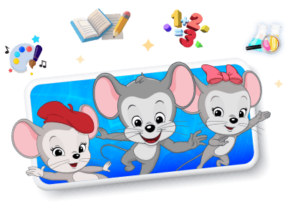
Then just $14.99/mo. until canceled
As a paid add-on to regular subscriptions, home educators can access the Assessment Center, which allows parents and caregivers to test children on their knowledge, determine successes and struggles, and receive recommended lessons based on assessments.
ABCmouse provides a robust curriculum that can supplement other early learning lessons. It’s trusted resource that’s been downloaded over 10 million times and has a 4.5-star average out of 831.4K ratings.
Adventure Academy and Homeschooling
Adventure Academy combines an interactive world with a curriculum covering reading, language arts, math, science, and social studies. With quests, games, and educational videos and activities, learning becomes an epic journey that motivates kids to explore various topics.
For homeschooling families, Adventure Academy offers an engaging, flexible learning experience that can supplement other educational materials. The program features thousands of activities created by curriculum experts and covers all major academic domains.
Parents and caregivers can choose academic difficulty levels and track each child’s progress, seeing time spent in Adventure Academy, activities completed, and subjects studied.
Adventure Academy emphasizes key topics such as reading comprehension, vocabulary development, mathematical operations, fractions, world geography, American history, physical science, life science, earth science, and scientific inquiry.
For more information, visit AdventureAcademy.com.

New York Homeschool FAQ
Is New York a homeschool-friendly state?
Homeschools are highly regulated in New York, and families are subject to a great deal of oversight by their local district. You must file annual education plans, submit quarterly progress reports, and provide annual evaluations, which include required standardized testing in some grades. Students aren’t able to take classes or play sports at public schools, and home educators are responsible for all homeschool costs.
That being said, home educators still have the freedom to choose their instructional materials and methods and can establish school schedules that work best for their families. Despite New York’s many regulations, homeschool families there are typically able to make home education a successful and positive experience.
Can New York homeschoolers take classes at public schools?
No, New York does not allow dual enrollment or part-time enrollment for homeschool students. These students may participate in extracurricular activities at their local public school, except for interscholastic sports.
How do New York homeschoolers receive diplomas or transcripts?
Homeschoolers in New York do not receive diplomas or transcripts from the state or their local school districts. While home educators may issue diplomas and transcripts, institutions of higher learning and hiring companies are not obligated to accept them as equivalent to a high school diploma.
Keep thorough records so you can provide transcripts that meet any requirements set by colleges and universities or hiring companies. Students may also consider earning their GED certificate (learn more here).
Is unschooling legal in New York?
New York home educators may choose their instructional methods, including unschooling, as long as they adhere to the state’s requirements and their child makes acceptable academic progress.
Legal Disclaimers
“The information and materials provided are for informational purposes only, and does not constitute legal, or other professional advice.
Any links provided to third-party resources are provided for convenience only. We do not sponsor or endorse, and are not affiliated with such parties, unless explicitly stated otherwise. We do not maintain or control these websites. Information presented on these sites may not be current or accurate – it is your responsibility to determine its accuracy and usefulness. By clicking on the links provided, you understand that you may be subject to additional terms and conditions and the privacy policies of such third parties.
Age of Learning makes no representation and assumes no responsibility for the accuracy of information contained on, or available through, this website, or its suitability for any purpose, and such information is subject to change without notice. You are encouraged to confirm any information obtained from or through this website with other sources, and review all information regarding any information with a trained legal professional.”


